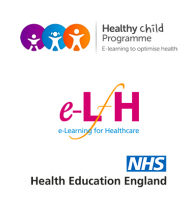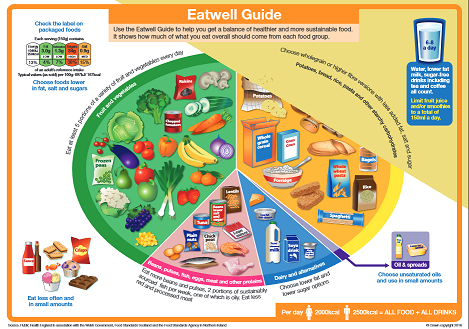Nutritional Requirements in Adolescence



This session will describe nutritional requirements during adolescence, typical eating patterns which could lead to nutritional deficiencies, common dieting strategies used, and the additional nutritional needs arising with pregnancy.
Learning Objectives
By the end of this session you will be able to:
- Summarise the five main food groups as demonstrated by the eatwell guide
- Recognise the role of a healthy diet during adolescence, for future good health and in preventing obesity
- Recognise the importance of specific nutrients during rapid adolescent growth
- Identify typical eating patterns in adolescence which may lead to nutrient deficiencies, and recognise that nutrient deficiency may accompany excessive calorie intake
- List common diets adopted by teenagers and summarise the nutritional significance of each
- Outline the nutritional needs that arise during teenage pregnancy
Adolescence is a time of change and this impacts significantly on nutritional requirements. Appropriate nutrition is essential for health and development during adolescence, as well as for future health.
Despite its importance, healthy eating is not usually a priority for adolescents. Achieving optimal nutritional intake therefore presents a particular challenge.
Before commencing this session you should complete the following AH session:
- 12_001 Body Shape and Body Image in Adolescence (401-0056)
Helen is Senior Research Fellow at UCL Great Ormond Street Institute of Child Health and unit manager of the NIHR Policy Research Unit in Obesity. Her principal areas of interest are adult and childhood obesity, and developing and evaluating behaviour change interventions.
Research includes evaluating policies, promoting healthy pregnancies, mapping obesity prevention policies, understanding the impact of advertising and food labelling. She previously worked in the Department of Behavioural Science and Health, UCL as a Clinical Research Dietitian. She has worked on a number of obesity treatment and prevention evaluations, including for childhood obesity, Change4Life, the NCMP, an intervention to change eating and activity habits women living with obesity during pregnancy, and a weight management intervention for adults with intellectual disabilities.
She supervises a number of PhD students, runs undergraduate and masters level modules, and regularly presents and trains health professionals in behaviour change. She is a committee member of the BDA Obesity Specialist Group and Secretary for the charity Weight Concern.

- Acute Medicine | Cardiorespiratory arrest 02 knowl...
- Posted By eIntegrity Healthcare e-Learning
- Posted Date: 2024-12-27
- Location:Online
- This session looks at the diagnosis and management of an accidental hypothermic patient presenting either with or without cardio respiratory arrest, and common complications. The initial rescue and recovery is not covered in this session.
- Introduction to Female Genital Mutilation/Cutting/...
- Posted By True Relationships & Reproductive Health
- Posted Date: 2024-12-27
- Location:Online
- This course gives an introduction to Female Genital Mutilation/ Cutting/ Circumcision (FGM/C) in Aus...
- Acute Medicine | Chest pain 01 knowledge A
- Posted By eIntegrity Healthcare e-Learning
- Posted Date: 2024-12-27
- Location:Online
- This session provides an overview of ischaemic electrocardiograms (ECGs) in acute medicine. It is not intended to teach how to interpret ECGs, but to understand the underlying coronary anatomy relative to their interpretation.
- Acute Medicine | Cardiorespiratory arrest 02 knowl...
- Posted By eIntegrity Healthcare e-Learning
- Posted Date: 2024-12-27
- Location:Online
- This session explains the pathophysiology and aetiology of hypothermia in adult patients and the way they present.
- Acute Medicine | Breathlessness 18 knowledge B
- Posted By eIntegrity Healthcare e-Learning
- Posted Date: 2024-12-27
- Location:Online
- This session describes how to evaluate, investigate and plan the management of a patient presenting with breathlessness due to anaemia.








